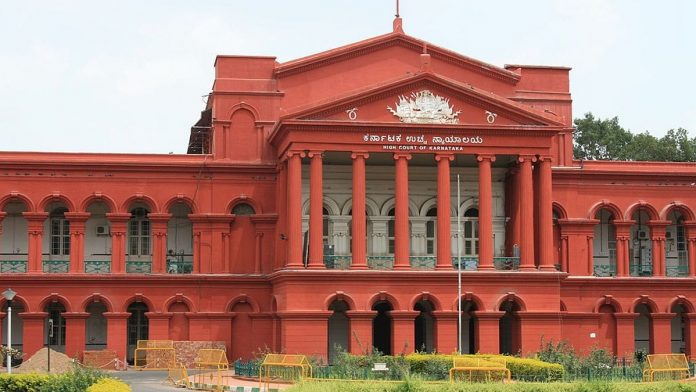New Delhi: Twitter’s petition challenging action against multiple handles is not maintainable, the central government told Karnataka HC Thursday. Declaring Twitter’s content management policies “a failure”, the Centre said the micro-blogging site is “not taking effective steps to prevent the spread of fake news or deliberate misinformation”.
The government, dubbing Twitter a “habitual non-compliant” platform, reiterated that the Information Technology Act, 2000, is the law of the land, adding that “foreign platforms providing services in the country shall not be entitled to claim that Indian Laws and Rules are not applicable upon them”.
“It is not for the intermediary platform to define what free speech is and what is not,” the government told the court in response to a petition filed by Twitter opposing 10 orders passed by the Centre last year.
In its petition, Twitter had termed these orders — aimed at blocking 39 handles — “arbitrary, excessive and disproportionate”, arguing that most of these orders were not supported by reasons.
Twitter had also contended that the orders did not comply with Section 69A of the Information Technology Act which allows the Centre to issue directions for blocking access to any information online.
According to the law, such measures can only be taken “in the interest of sovereignty and integrity of India, defence of India, security of the State, friendly relations with foreign States or public order or for preventing incitement to the commission of any cognizable offence”.
Challenging the claims made by the San Francisco-headquartered company, the central government said Twitter complied with blocking orders “only after reminders and show cause notices”.
The government also alleged that this delay on the part of Twitter was intentional, submitting that the company “purposely caused inordinate delay” in complying with the directions (in some cases, more than a year).
This, the Centre said, was done to “ensure that the blocking directions lose its [sic] value and the content under Section 69A become more viral and also spread to other platforms also, resulting in increase in threat to sovereignty and integrity, national security and public order issues eventually causing risks to the citizens and the country.”
Also Read: Kasab, Covid orphans, Noida demolition — Gaurav Agarwal has been ‘friend’ of SC in varied cases
In a detailed statement of objections filed before the high court, the central government acknowledged that Twitter is, though indirectly, trying to defend the right to free speech and expression guaranteed to its users in India under Article 19(1)(a) of the Constitution.
Twitter is a “foreign company, which is only pursuing a commercial activity for monetary profit”, the Centre said, adding that the company has no right to allege violation of the fundamental rights of its users.
Explaining the blocking orders, the government submitted: “In this digital age, platforms are misused by anti-India elements and foreign adversaries for anti-India propaganda in the national and global level and create disunity and disorder in the country.
“Misleading content, fake news, hate speech content on religious or ethnic lines, are widely spread and it has potential to multiply in various forms or new modified contents across various other platforms.”
In its petition, Twitter had also stated its objection to the non-issuance of notices by the Centre to accounts it sought to block.
However, the Centre has now asserted that as far as anonymous accounts are concerned, it is not obligated to issue them a notice, and serving Twitter a notice in this regard would suffice under the existing laws.
The government also submitted that the accounts in question are unverified and there is nothing to show whether those are being operated by Indian citizens or are fake, anonymous or bots. There is no fundamental right of anonymity under the Constitution, read the statement of objections.
Moreover, the Centre contended Twitter’s argument that issuing notices to users for content related to national security and public order-related issues “is not a prudent and sensible option”. The majority of such orders are issued for content related to issues of national security and public order, the government asserted.
“Examples of such contents include Anti-India, or seditious or any religious contents that have potential to incite violence, and contents that affect communal harmony in the country e.g. SFJ or Khalistan related content.
“These contents are posted by users who are either terrorists or sedition seekers or their sympathizers or foreign adversaries whose intent is to destabilize India and its national security on communal lines,” the government told the high court.
(Edited by Amrtansh Arora)
Also Read: ‘Conflict at later stage, no unilateral power’ — why SC ruled arbitrators can’t alter fees midway
Subscribe to our channels on YouTube & Telegram
Support Our Journalism
India needs fair, non-hyphenated and questioning journalism, packed with on-ground reporting. ThePrint – with exceptional reporters, columnists and editors – is doing just that.
Sustaining this needs support from wonderful readers like you.
Whether you live in India or overseas, you can take a paid subscription by clicking here.
Support Our Journalism
Copyright © 2022 Printline Media Pvt. Ltd. All rights reserved.






